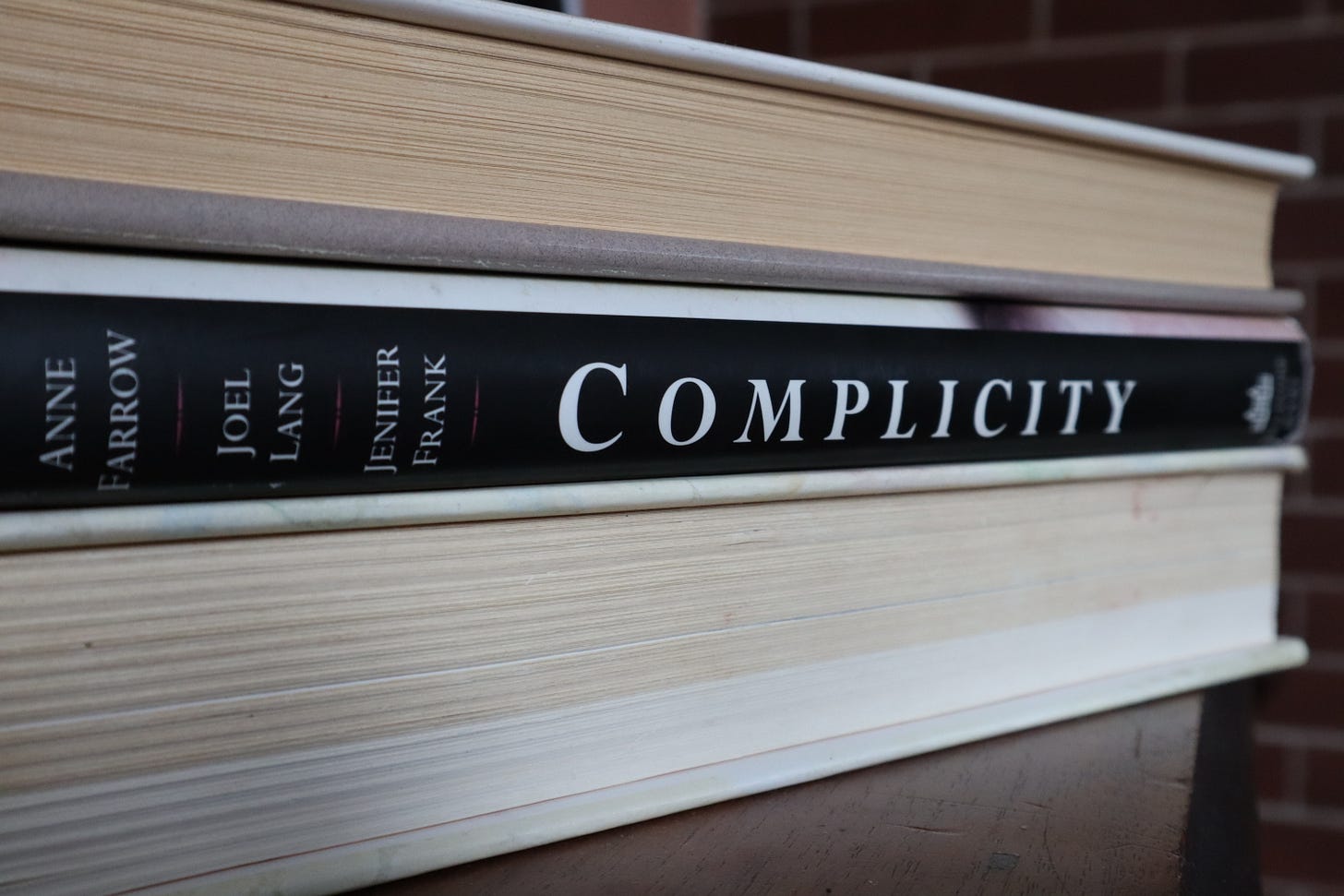This Week, I'm Reading...
Complicity: How the North Promoted, Prolonged, and Profited from Slavery, by Anne Farrow, Joel Lang, and Jenifer Frank
I started reading Complicity a year or so ago, got interrupted, and finally returned to it this week. Don’t let that interruption fool you. This is an important book. In fact, if I may be pushy, it’s a must-read for every American, particularly those of us from the Northeast, because it undermines what most of us were taught about the role of the North in the institution of slavery. Take, for example, this quotation from Harvard historian Bernard Bailyn: “New England was not a slave society… But it was slavery nevertheless that made the commercial economy of New England possible and that drove it forward.” Or consider the fact that after the slave trade was outlawed in 1808 (though not slavery itself), slavery in the North simply shifted underground, and its center moved from the docks of Newport, Rhode Island to New York City, where it became even more brutal. How many Newport vacationers have any idea of what transpired there? How many visitors to New York City imagine its past as a shipbuilding hub where new ships were “outfitted for their African voyages, sometimes complete with crates of shackles and the supersized water tanks needed for their human cargo” and where “[c]ustoms agents, uncaring or bribed, looked the other way as slave ships sailed from New York harbor under the flimsiest of disguises”? My husband and I recently rode our tandem bike down the Providence River to Bristol, Rhode Island, where we spotted two very old brick buildings on the waterfront. One was named DeWolf Tavern. Here’s what Complicity has to say about Bristol and the DeWolfs: “In the last frenzied years of the legal slave trade… the previously minor port of Bristol, a few hours’ sail north on Narragansett Bay, outstripped Newport. During the Bristol era, two of America’s most audacious slave merchants, John Brown of Providence and Captain James DeWolf of Bristol, joined forces to protect the trade… Both Brown and DeWolf morphed into plutocrats, at odds with and above the law.” It’s bad enough that DeWolf’s name remains on that waterfront tavern; Brown’s name is on Brown University. Had I not read Complicity, I would have known none of this. We looked for signs in Bristol acknowledging its slave trade history and found a small plaque on the corner of one building, part of the Rhode Island Slave History Medallions project. The tavern markets itself as a former warehouse and the DeWolfs as “maritime merchants” and “rum producers” involved in “the ‘Triangle Trade.’” Wow. Complicity was researched and written by three journalists from The Hartford Courant. They’re not famous, and neither is their book. But it should be.





Hi Kathy...putting it on my list. Our Banned Books group is reading Stamped, a YA by Jason Reynolds’s and Ibram X. Kendi. I think its intent is working; feeling very uncomfortable while reading.
Many a New England fortune was made via the slave trade. Doubly interesting that it was written by Htfd Courant writers. Thanks for the recommendation ... arghh ... I will live forever if it depends on my finishing by TBR pile! ;-)